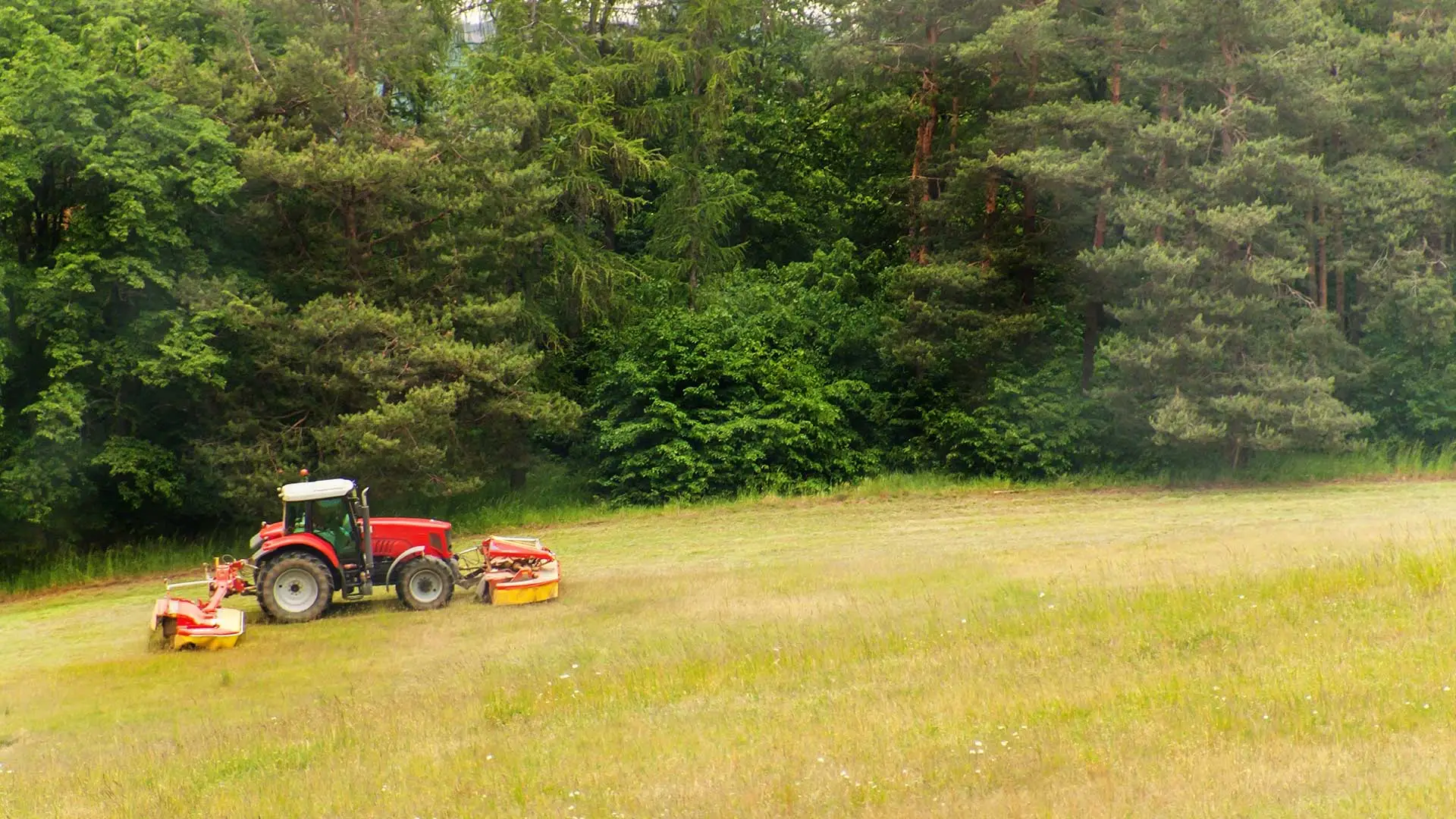Maintaining a healthy lawn during the summer months in the Midwest can be challenging. With high temperatures, inconsistent rainfall, and persistent weeds, your lawn needs strategic care to stay green and resilient. In addition to proper mowing and watering techniques, homeowners in the Columbia, Illinois area are now facing an additional concern: an increase in spider mite damage to landscape plants.
This summer lawn care guide outlines proven techniques to help you manage common seasonal stressors and protect your landscape from emerging threats.
Smart Mowing Practices for Summer Lawn Health
One of the most important elements of summer lawn care is proper mowing. Mowing your grass too short during periods of heat and drought can cause stress and weaken your turf. For most cool-season grasses common in the Midwest, it is recommended to keep your grass height around 3 to 4 inches during the summer.
Cut no more than one-third of the grass blade at a time, and make sure your mower blades are sharp to avoid tearing the grass. Mowing in the early morning or late afternoon can also help reduce stress on your lawn.
Pro Tip: Leaving grass clippings on your lawn after mowing provides a natural source of nutrients. This reduces the need for supplemental fertilizers and helps maintain moisture in the soil, especially beneficial during dry periods.
Efficient Watering Strategies
During summer, lawns require consistent moisture to maintain health and color. Rather than watering lightly each day, it is more effective to water deeply and less frequently. This encourages deep root growth, which makes the grass more drought-tolerant.
Aim for about 1 to 1.5 inches of water per week, including rainfall. Early morning is the best time to water your lawn, as it reduces evaporation and gives your lawn time to dry during the day, helping to prevent fungal diseases.
Pro Tip: Keep an eye out for signs of drought stress, including a bluish tint to the grass or footprints that remain visible after walking across the lawn. Addressing these signs early with proper watering practices can help prevent lasting turf damage.
Weed Control During the Summer Months
Summer weeds such as crabgrass, thistle, and spurge can quickly take over a lawn if not properly managed. Maintaining a thick, healthy lawn is your best defense against weeds. However, if weeds have already appeared, spot treatments with post-emergent herbicides can help control them without damaging the surrounding turf.
It is also important to monitor landscape beds, especially where mulch may have broken down. Apply fresh mulch where needed and remove weeds manually before they go to seed.
Spider Mite Damage on the Rise in St. Louis Area
In recent weeks, our team has observed significant spider mite activity while visiting properties throughout Columbia, Illinois and surrounding areas. These pests are affecting popular landscape plants including Dwarf Alberta Spruce, Burning Bush, Holly, Roses, and Butterfly Bush.
Spider mites are tiny, spider-like pests that feed by piercing plant tissue and sucking out the sap. While they are difficult to see with the naked eye, signs of an infestation include:
- Yellowing or stippling on leaves
- Curled or browning foliage
- A dusty or dull appearance
- Fine webbing under leaves or between branches
Because spider mites reproduce quickly, they can cause significant damage in a short period of time. Outdoor infestations can lead to plant decline or death if not addressed. If you suspect spider mite activity, act promptly. Tapping a branch over a white sheet of paper and observing small moving specks is one simple way to confirm their presence.
Our licensed applicators are equipped to treat trees and shrubs with targeted solutions to prevent further damage and restore plant health.
Protect Your Lawn and Landscape this Summer
Proper mowing, watering, and weed management are essential for summer lawn health in the Midwest. As new threats like spider mites emerge in the Columbia, Illinois, timely intervention is key to protecting your investment.
If you are seeing signs of stress in your lawn or landscape plants, contact Linnemann Lawn Care & Landscaping to schedule a professional evaluation. Our team is ready to provide expert care and customized treatment plans to keep your property looking its best.
Call 618-939-4769 or contact us online to request service today.





Comments (0)
Thanks for your comment!
Thanks for your feedback! Your comments have been successfully submitted! Please note, all comments require admin approval prior to display.
Error submitting comment!
There is a problem with your comment, please see below and try again.